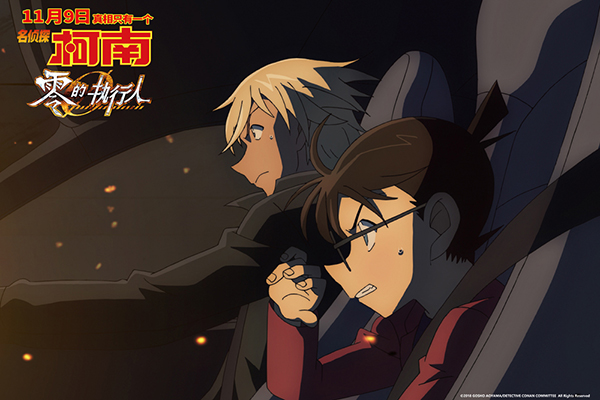 |
|
Detective Conan: Zero the Enforcer [Photo/Mtime] |
However, not everything has gone as smoothly as the hatching of the agreement.
Both Chinese and Japanese filmmakers have recognized some potential problems that the two sides may face in film cooperation, including cultural differences. According to Kenneth Bi, its not only about the language, but also about culture and the way they work. For example, Chinese crews act more flexibly while Japanese crew-members are very methodical in their work.
Laura Fu said that overcoming cultural differences to work together requires patience. The working mode of filmmakers varies from place to place, but as long as we are aiming for the same goal and move in one direction, the difference is not so important.
Terence Chang Chia-Chen, a renowned Hong Kong director who has produced many Hollywood blockbusters and co-productions between China and U.S., said that the prospects for cooperation between China and Japan are promising, but what is lacking the most are good scripts.
"We have excellent filmmakers and advanced technology, but what we lack most is a work that can resonate with the people of both countries, the director said.
He made the remarks at the New Development of Chinese and Japanese Film Co-Production seminar, held on the the sidelines of the 31st Tokyo International Film Festival.
Also at the seminar, a well-known Japanese director of photography Katsumi Yanagijima, said that in order to effectively utilize the China-Japan film cooperation, the first and foremost problem to be solved is the structure of the bilateral cooperation. "Cooperation is not about splitting up the workload, but finding the best balance between the two sides and bringing out their respective advantages."
Terence Chang Chia-Chen believes that the best way to resolve cultural differences is to respect each other, respect differences, and focus on communication.
Geng Zhong, chairman of the Executive Committee of the Japan-China Film Festival, believes that the agreement signed by the Chinese and Japanese governments on co-production has undoubtedly reassured film industries on both sides.
It will enable more Chinese and Japanese filmmakers to engage in artistic creation without fear, so that more outstanding works will be born, Geng said.
The history of bilateral film exchanges dates back to the 1970s, when Japanese actress Komaki Kurihara became famous in China when the Japanese movie Ai to Shi was introduced to the country in 1979. She has been devoted to the cultural communication between China and Japan since then.
At the closing ceremony of China Film Week which was held on the the sidelines of this years TIFF, Kurihara said, The artistic charm of movies is of great value. The communication and exchange of Chinese and Japanese films are the practice of the oath of the permanent of peace and friendship between China and Japan.